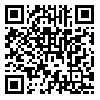Volume 8, Issue 3 (10-2021)
J Prevent Med 2021, 8(3): 18-27 |
Back to browse issues page
Research code: 970338
Ethics code: IR.HUMS.REC.1398.267
Download citation:
BibTeX | RIS | EndNote | Medlars | ProCite | Reference Manager | RefWorks
Send citation to:



BibTeX | RIS | EndNote | Medlars | ProCite | Reference Manager | RefWorks
Send citation to:
Dindarloo K, Mouseli A, Ghaffari H R, Ghanbarnejad A, Khademi Bafrouei M, khorasani R, et al . microbial load of bread and handicrafts in bakeries in Bandar Abbas during the COVID-19pandemic. J Prevent Med 2021; 8 (3) :18-27
URL: http://jpm.hums.ac.ir/article-1-534-en.html
URL: http://jpm.hums.ac.ir/article-1-534-en.html
Kavoos Dindarloo1 

 , Ali Mouseli *
, Ali Mouseli * 

 1, Hamid Reza Ghaffari2
1, Hamid Reza Ghaffari2 
 , Amin Ghanbarnejad1
, Amin Ghanbarnejad1 

 , Mojtaba Khademi Bafrouei3
, Mojtaba Khademi Bafrouei3 

 , Razieh Khorasani2
, Razieh Khorasani2 

 , Mashallah Moridi2
, Mashallah Moridi2 

 , Hossein Eydi2
, Hossein Eydi2 

 , Somaye Hosseinvand Tabar2
, Somaye Hosseinvand Tabar2 

 , Moslem Gholam Nejad2
, Moslem Gholam Nejad2 



 , Ali Mouseli *
, Ali Mouseli * 

 1, Hamid Reza Ghaffari2
1, Hamid Reza Ghaffari2 
 , Amin Ghanbarnejad1
, Amin Ghanbarnejad1 

 , Mojtaba Khademi Bafrouei3
, Mojtaba Khademi Bafrouei3 

 , Razieh Khorasani2
, Razieh Khorasani2 

 , Mashallah Moridi2
, Mashallah Moridi2 

 , Hossein Eydi2
, Hossein Eydi2 

 , Somaye Hosseinvand Tabar2
, Somaye Hosseinvand Tabar2 

 , Moslem Gholam Nejad2
, Moslem Gholam Nejad2 

1- Social Determinants in Health Promotion Research Center, Hormozgan Health Institute, Hormozgan University of Medical Sciences, Bandar Abbas, Iran.
2- Food Hygiene Research Center, Hormozgan University of Medical Sciences, Bandar Abbas, Iran.
3- Endocrinology and Metabolism REsearch center,hormozgan university of medical sciences,Bandar Abbas,lran
2- Food Hygiene Research Center, Hormozgan University of Medical Sciences, Bandar Abbas, Iran.
3- Endocrinology and Metabolism REsearch center,hormozgan university of medical sciences,Bandar Abbas,lran
Abstract: (1798 Views)
Introduction: Microbial contamination of bread can endanger the health of consumers. The aim of this study was to determine the microbial contamination of bread and hands of workers directly supplying bread in selected bakeries in Bandar Abbas.
Methods: In this descriptive-analytical study conducted in 2020, 76 bakeries were randomly selected and bread samples were taken using relative stratified sampling method, based on the baking type, and transferred to the food laboratory to measure the microbial load. Also, from each bakery, a bread distributor was selected to investigate the hand microbial contamination. The microbial load of bread samples was measured in a food lLaboratory and the microbial load of workers' hands was measured using an SSP device. Statistical analysis was performed using SPSS software. Mean and standard deviation parameters were used to describe the data and Chi-square test was used to examine the relationship between variables at a significance level of 0.05.
Results: Based on the results, out of a total of 76 samples taken from the workers, 51 samples (80%) were found to be infected with microorganisms. Having a health card, using face masks, and respecting personal hygiene, social distancing, and disinfection protocols had a significant relationship with workers' hand contamination (P-Value<0.05). The results of measuring the microbial load of bread samples showed that all samples were free of microbial contamination.
Conclusion: Despite no microbial contamination in the bread samples, contamination of workers' hands can be a source of microbial contamination for bread. Therefore, it is recommended that health officials consider strict controls over personal hygiene and the health of bakeries.
Methods: In this descriptive-analytical study conducted in 2020, 76 bakeries were randomly selected and bread samples were taken using relative stratified sampling method, based on the baking type, and transferred to the food laboratory to measure the microbial load. Also, from each bakery, a bread distributor was selected to investigate the hand microbial contamination. The microbial load of bread samples was measured in a food lLaboratory and the microbial load of workers' hands was measured using an SSP device. Statistical analysis was performed using SPSS software. Mean and standard deviation parameters were used to describe the data and Chi-square test was used to examine the relationship between variables at a significance level of 0.05.
Results: Based on the results, out of a total of 76 samples taken from the workers, 51 samples (80%) were found to be infected with microorganisms. Having a health card, using face masks, and respecting personal hygiene, social distancing, and disinfection protocols had a significant relationship with workers' hand contamination (P-Value<0.05). The results of measuring the microbial load of bread samples showed that all samples were free of microbial contamination.
Conclusion: Despite no microbial contamination in the bread samples, contamination of workers' hands can be a source of microbial contamination for bread. Therefore, it is recommended that health officials consider strict controls over personal hygiene and the health of bakeries.
Type of Study: Orginal |
Subject:
Environmental Health
Received: 2021/07/18 | Accepted: 2021/07/31 | Published: 2021/10/2
Received: 2021/07/18 | Accepted: 2021/07/31 | Published: 2021/10/2
Send email to the article author
| Rights and permissions | |
 |
This work is licensed under a Creative Commons Attribution-NonCommercial 4.0 International License. |




 hums.ac.ir
hums.ac.ir